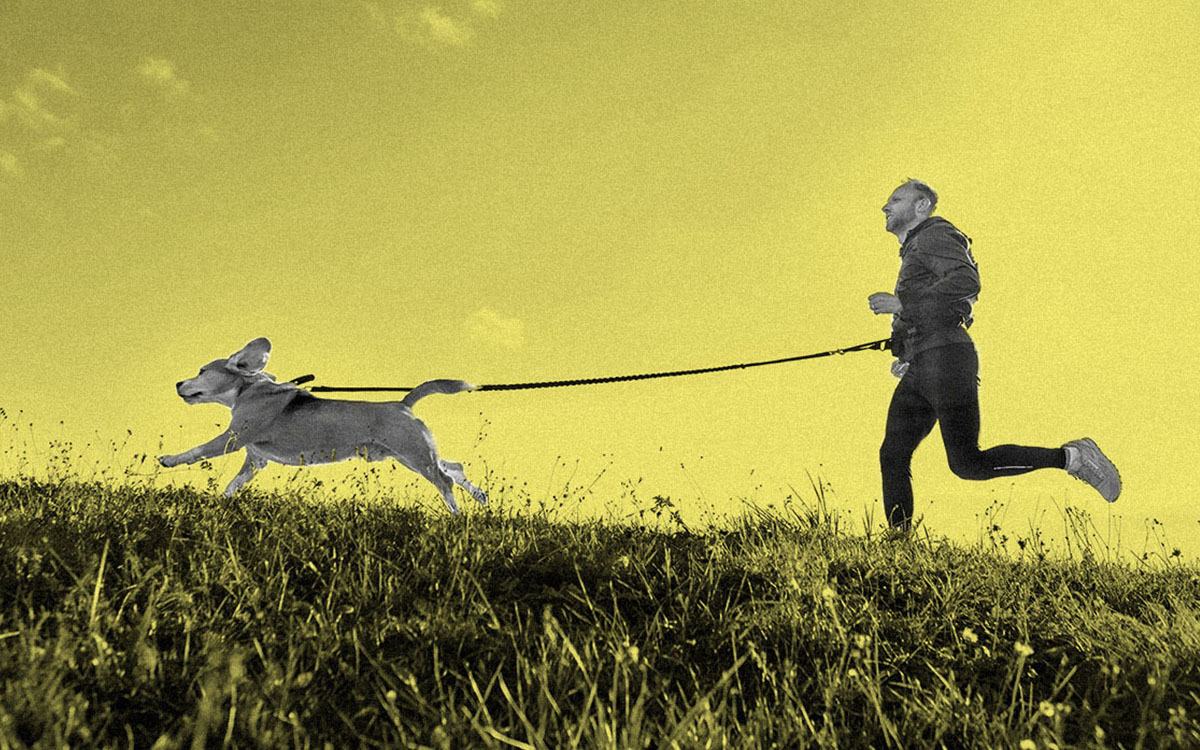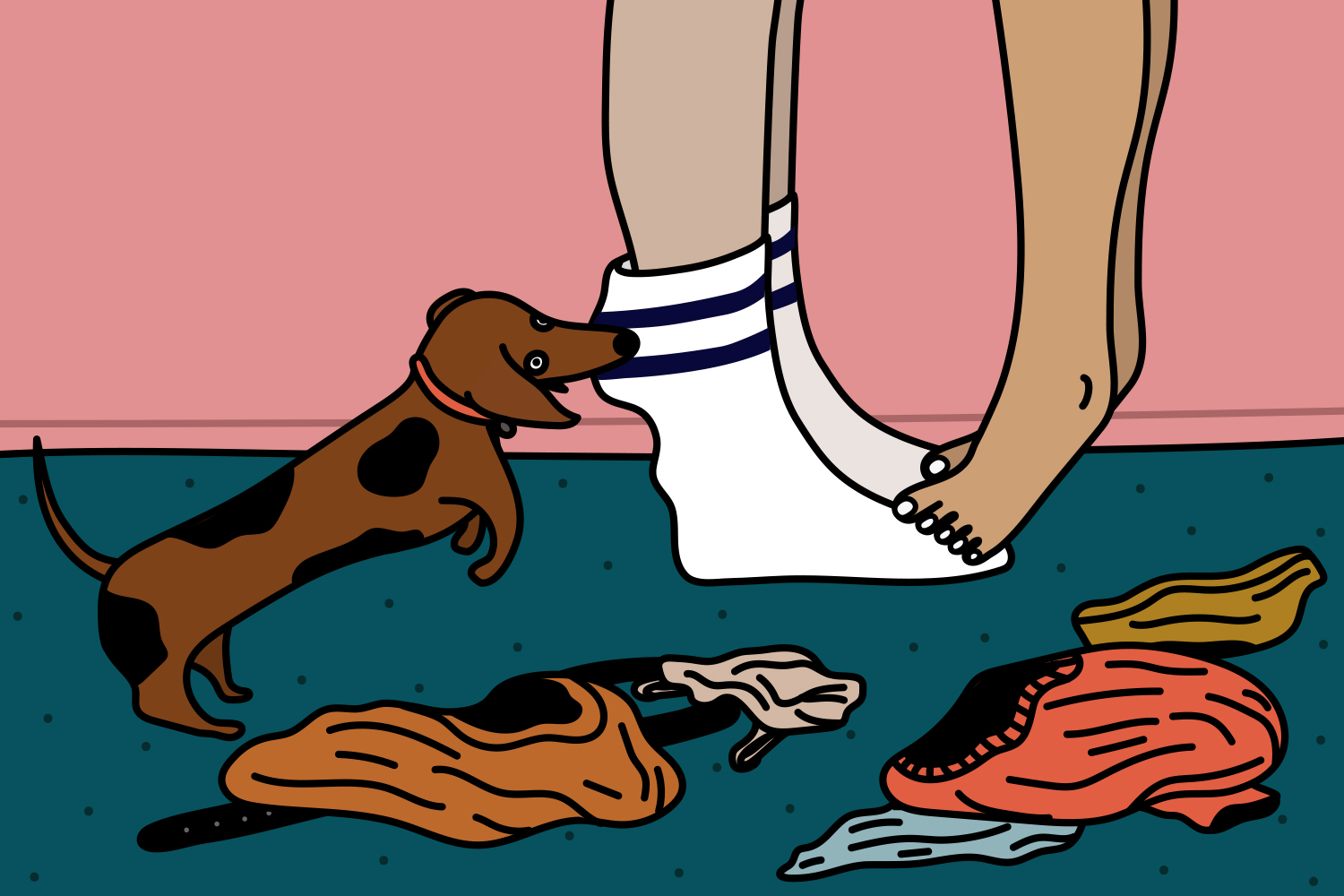Being a dog owner in a city isn’t easy. Being a dog owner in a city with a full-time job in an office you have to go to is even more difficult to navigate.
Some smaller offices and startups allow pets within given parameters, such as size or breed, but it’s usually sold as a perk of the job rather than a certainty. But with pet shelters in cities like New York and San Francisco seeing a major surge in adoptions during the COVID-19 lockdown, businesses might need to think about easing their restrictions on dogs in the workplace.
“We have two rescue dogs,” Michael Klein, Head of Industry Strategy for Adobe Services says, “and my wife is a volunteer with one of the rescue societies here in the Bay Area. At this moment, there are more people who are looking to either own or foster a dog than there are dogs. We signed up to foster a dog and there is actually a waiting list right now. It’s a good thing that these dogs have homes now, but there is the concern that when this is all over there are going to be dog owners that don’t really know what they got themselves into. It’s not unlike the holiday phenomenon when people buy pets as gifts during the holiday season and don’t realize what it takes to take care of a pet, so there are a lot of returns when the season is over.”
With experience owning multiple dogs and working for a corporation that doesn’t allow them into his workplace, Klein says he hopes the people who adopt pets during quarantine are weighing the pros and the cons. Particularly keeping in mind the amount of time you’ll be able to spend with your dog once your routine gets back to normal. Dogs are social animals and would much rather be around someone else than be stuck indoors alone. “I can tell you that for a company the size of Adobe, with over 20,000 employees across the globe, it would be really problematic to allow dogs. I would not foresee the company, or other large corporations, changing those regulations.”
For large and established companies, allowing dogs in the workplace could be too radical of a change. But for young and growing companies looking to offer a welcoming environment to new employees, becoming pet-friendly could be the right move. Take Google, which has been known to call itself a ‘dog company’ and boasts a lenient policy on dogs in the workplace. Klein pointed out that this is already the case in and around San Francisco, “Every work environment is going to be a little different. Here in the Bay Area, the startup corporations are probably more lenient in allowing employees to bring a pet to work. I do know there are a lot of small companies, where there are under 100 employees, that let you bring a pet.”
Perhaps this rise in city dog-owners will be the inspiration for more businesses to move in the same direction. Rather than following the holiday season trend of sending newly adopted dogs back to shelters, making workplaces more hospitable to dog owners could save the shelters from an overwhelming amount of returns.
The employees of Hinge, a dating app startup, benefit from working in a pet-friendly environment. A spokesperson says, “We’ve found that the benefits of allowing dogs in the office far outweigh any challenges. Our workplace experience team at Hinge empowers our dog owners to ensure their dogs are respectful, quiet and overall add to our office culture. They make the team happy, bringing a balance and mental wellbeing to the office. They also serve as reminders to get outside and experience natural light throughout the day, which encourages proactivity.”
They’ve also considered the disadvantages, such as allergies and dog feuds, and have found ways to incorporate solutions into their ethos; “One tool our workplace experience team leverages is a #puppies channel on Slack where dog parents discuss when they prefer to bring their dogs in. This allows the pup parents to plan ahead appropriately, in the off-chance that some dogs don’t mix well with others. We also believe it’s important to advertise that you are a dog-friendly company, so new employees aren’t blindsided. Additionally, we can consider dog-free zones should any employees have allergies. Overall, our approach is to operate as fairly as we can and address challenges on a case by case. It’s well worth it!”
Pet-friendly offices not only improve the quality of life for the dogs, but can also make life in the workplace more relaxed and entertaining. Jill Gordon, founder of Jill Gordon Celebrate, a boutique event consultation firm, has had at least one dog at the office since her company’s inception in 1995.
“I have a small office, just me and a few other people, but having dogs relaxes people,” Gordon says, “It makes things less formal, so when someone new comes into the office, the dogs give us a reason to connect. Having dogs in my office adds a level of fun, amusement, love, and warmth. It’s a distraction in both the best and the worst way. There’s something to focus on when work is stressful and it’s nice to have a warm body there. Mr. Big” — an ironically named seven-pound Yorkie — “sits behind me on my seat, all day. He is always with me, I can never sit back in my chair. It’s amazing and I love it, but it’s a distraction. When I’m doing a video conference, the second I get on the call, he just needs attention.”
For city dwellers who work in dog-averse environments, it’s important to keep up-to-date on the growing number of resources and startups that cater to their needs, like Sniff San Francisco, a locally owned dog-walking, training and boarding company that helps those who need an extra hand caring for a dog in the city. Jim and Benny, the company’s owners and operators, say that the pandemic has not affected the way they’ve been conducting business, but their concerns mirror those of most shelter employees, albeit for slightly different reasons: “We honestly do not believe that many animals will be surrendered due to folks being unable to find dog walkers for their pets. In contrast, we anticipate an economic fallout that could be more severe than the Great Recession of 2008. Separate from the large numbers of pets being returned in 2008, there were also many pets that were abandoned.”
There’s also concern has been for the psychiatric state of the newly adopted dogs that have been receiving unlimited attention and affection during lockdown. They’ll likely be acclimatized to this environment, leaving them lonely and possibly depressed once their owners return to work after the lockdown. While most of these dogs won’t be sent back to the shelter, they might still be damaged from the stress of being left home alone. But even this scenario has been considered already. There are countless new tech companies devoted to letting dog owners communicate with their pets all day long. With PetChatz, you can chat with your dog, give it treats and even offer aromatherapy. If you’d rather have your dog taken care of in person, you can opt to drop him off at a dog daycare center or use Rover.com to have someone come to your house for a check in or play date.
Given the continuing success of dog-walking and training companies, new pet tech and an uptick in pet-friendly workplaces likely on the horizon, there just might be a major influx of four-legged citizens in your city once the COVID-19 lockdown is lifted.
The Charge will help you move better, think clearer and stay in the game longer. Subscribe to our wellness newsletter today.
























